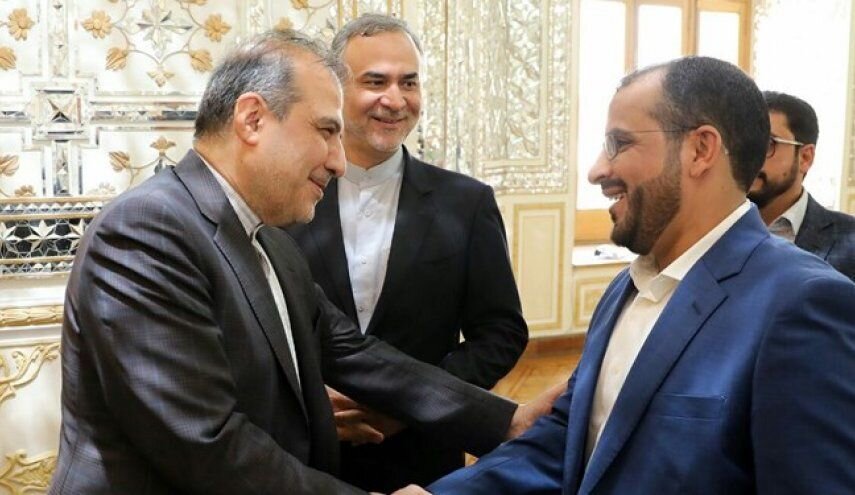TEHRAN - In a phone conversation on Saturday, Ali Asghar Khaji, the assistant to Foreign Minister Mohammad Javad Zarif for political affairs, discussed solution to the Yemeni crisis with Mohammed Abdulsalam, the spokesman for Yemen’s Ansarullah and chief negotiator of the National Salvation Government.
Khaji suggested that dialogue, which will be based on an end to the Yemeni war and blockade, is the only solution to the crisis.
For his part, Abdulsalam elaborated on the latest political developments in Yemen.
He also praised Iran’s humanitarian, political and spiritual supports for the Yemenis.
Zarif and UN Secretary General Antonio Guterres held a phone conversation on April 26 discussing the necessity to send humanitarian aid to the war-stricken Yemen, especially as the country is being hit by the coronavirus pandemic.
For this purpose, the two top officials highlighted, it is needed to open the Yemeni borders and also protect security of borders and ports.
Guterres also welcomed Iran’s efforts for a truce in Yemen and pushing for start of political talks between the warring sides in the country.
In another telephone conversation on April 12, Zarif and Guterres discussed regional developments, especially in Yemen.
Zarif expressed Iran’s support for dialogue to settle regional issues, noting that the Yemen crisis does not have a military solution.
He added that a consistent ceasefire can be a good start for a political resolution of the ongoing conflict in the country.
In April 2015, Zarif submitted a letter to Ban Ki-moon, then UN secretary general, outlining Iran’s four-point peace plan for Yemen.
The plan calls for an immediate ceasefire and end to all foreign military attacks, humanitarian assistance, a resumption of broad national dialogue and establishment of an inclusive national unity government.
Saudi Arabia launched military campaign against Yemen in March 2015 with the aim of eliminating the Yemeni opposition groups who had toppled the government of President Mansour Hadi.
Crown Prince Mohammed bin Salman (MBS), the Saudi de-facto leader, had vowed to restore the toppled president in a matter of weeks.
In a report on its website on March 24, the Amnesty International said, “Gross human rights violations, including what could amount to war crimes, are being committed throughout the country. By the end of 2019, it is estimated that over 233,000 Yemenis would have been killed as a result of fighting and the humanitarian crisis.”
Meanwhile, the Office of the UN High Commissioner for Human Rights has documented more than 20,000 civilians killed and injured by the fighting since March 2015, the amnesty said.
A man-made humanitarian crisis has spiraled with approximately 16 million people waking up hungry every day, the amnesty regretted.
TAGS


No comments:
Post a Comment